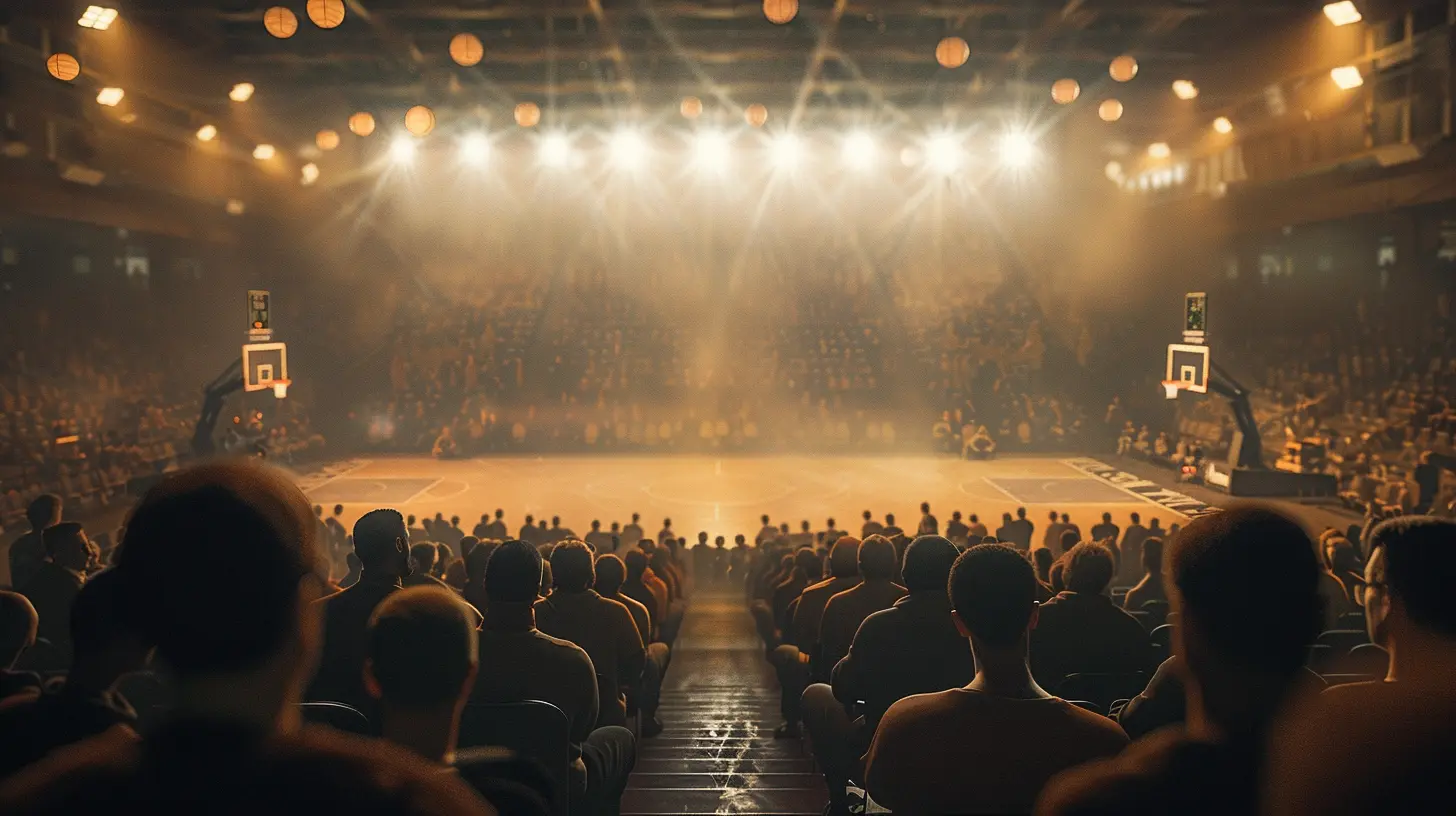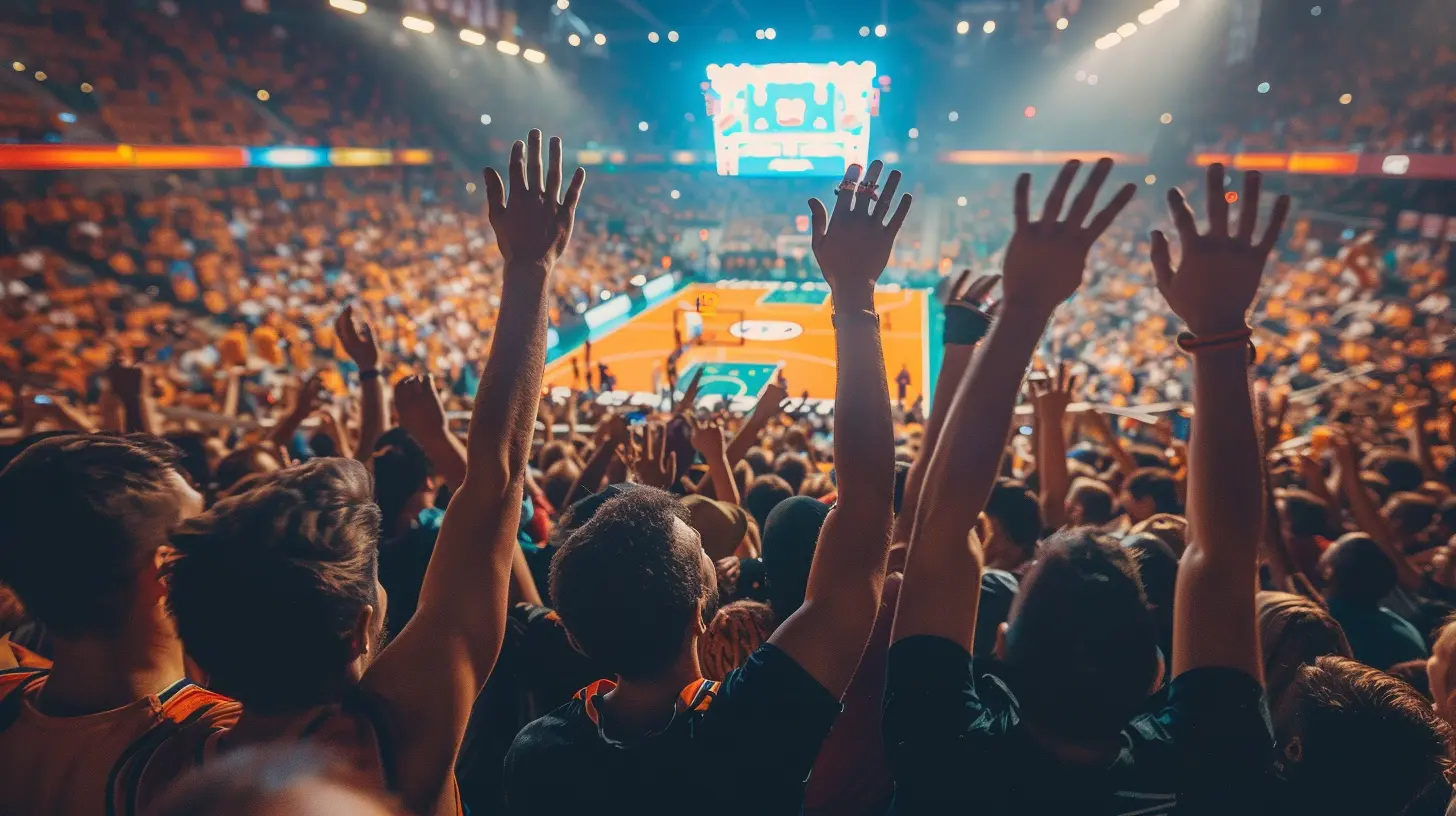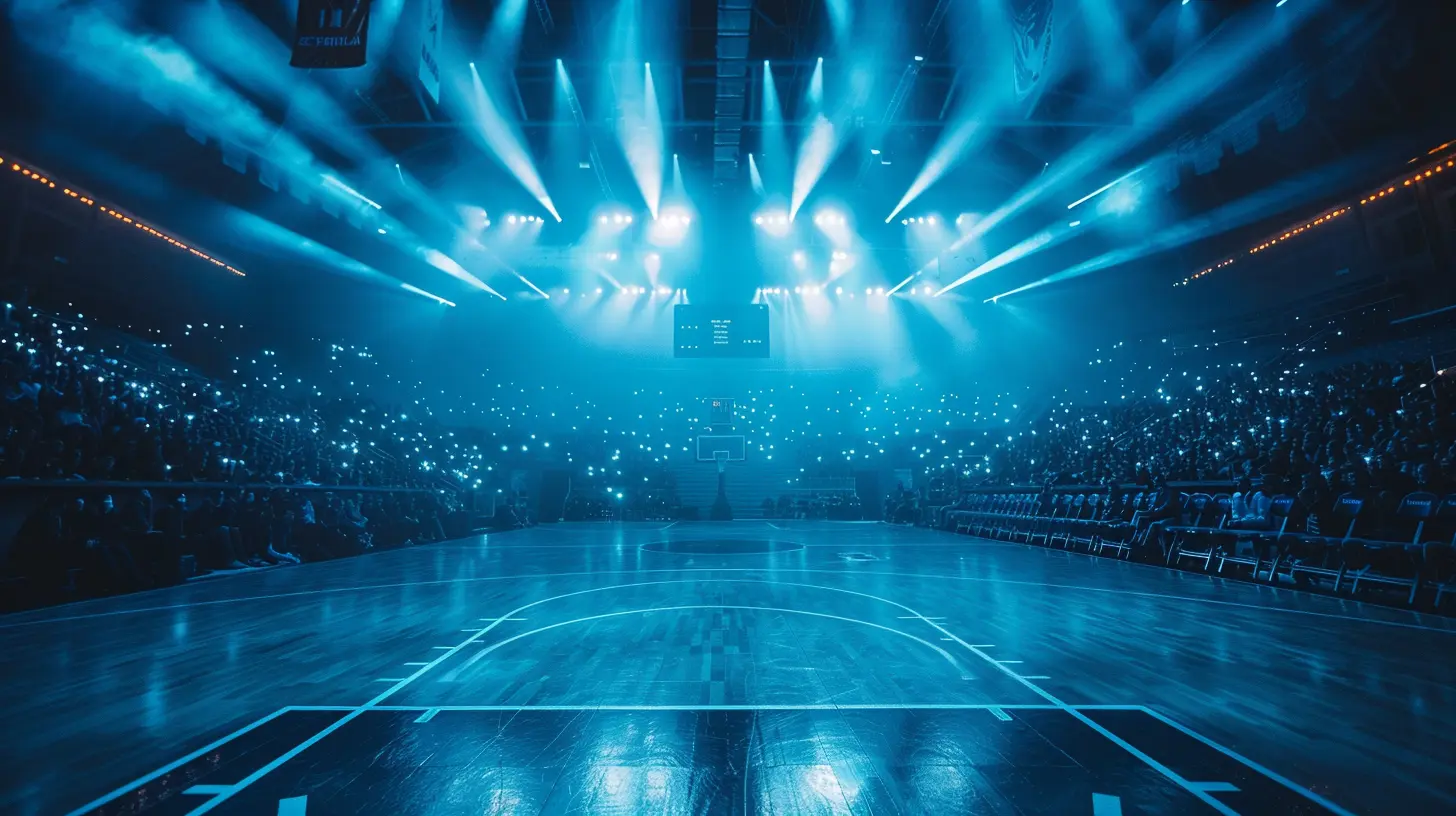The Impact of Crowd Energy on Home-Court Advantage
28 August 2025
There’s just something magical about a roaring home crowd, isn’t there? The deafening cheers, the synchronized chants, and the electricity in the air—it's almost like a force field surrounding the home team. Whether it's a packed NBA arena, a college basketball gym, or a European soccer stadium, crowd energy plays a massive role in home-field (or home-court) advantage. But why does it matter so much? How does it actually influence the game?
Let’s dive into the psychology, the science, and the real-life effects of crowd energy on home-court dominance.

What Is Home-Court Advantage?
Home-court advantage is one of the most talked-about phenomena in sports. It refers to the increased likelihood of the home team winning when playing in their own stadium, arena, or gym. This isn’t just sports mythology—there’s plenty of data to support it.Teams tend to win more frequently at home than they do on the road. Studies have shown that in some sports, home teams win nearly 60% of the time. In the NBA, for example, teams have historically won around 55-60% of their home games, and in soccer, home teams win even more often. But why?
While factors like less travel fatigue, familiar surroundings, and referee bias contribute to this advantage, one of the most overlooked and fascinating aspects is the impact of the crowd itself.

The Psychological Edge
Crowd Noise and Player Confidence
Imagine walking onto your home court with thousands of fans screaming your name. The adrenaline rush is undeniable. Players often feed off this energy—they feel more confident, more aggressive, and more willing to take risks. This boost in morale can lead to better decision-making, quicker reactions, and an overall elevated performance.On the other hand, visiting players face a completely different experience. A hostile crowd can rattle even the most seasoned athletes. Constant boos, jeers, and even personal attacks can create anxiety, leading to uncharacteristic mistakes and poor decision-making.
The Pressure on Opponents
Playing in front of a hostile crowd feels like taking a test while the entire school watches. Every missed shot is met with mocking cheers; every turnover is amplified by thousands of voices. It’s mentally exhausting.Research has shown that opposing teams often struggle with execution when playing in a high-energy environment. Their shooting percentages drop, error rates increase, and communication among teammates becomes more difficult. It’s hard to focus when 20,000 fans are screaming at you.

The Science Behind It
The Role of Adrenaline
Crowd energy directly impacts players' physiological responses. The home crowd’s cheers trigger adrenaline spikes, making athletes more alert, focused, and energetic. This "fight or flight" response can be a game-changer in high-stakes moments.For visiting teams, however, the stress response often leads to nervousness or overthinking. Instead of playing freely, they become tight and cautious—something no athlete wants.
Referee Influence
Believe it or not, referees are human too. Studies suggest that home teams get the benefit of the doubt on close calls. Why? Because refs subconsciously respond to the overwhelming noise of the home crowd.In a split-second decision, if a referee hears 18,000 people screaming for a foul, they might be slightly swayed to blow the whistle. While they strive for neutrality, it's impossible to ignore the psychological pressure from thousands of fans.

Crowd Energy in Different Sports
Basketball
NBA teams are famous for feeding off the energy of their home crowd. Just think about the Golden State Warriors at Chase Center or the Utah Jazz playing in front of their notoriously loud home fans.The crowd fuels momentum swings in basketball. A big dunk or a clutch three-pointer sends the arena into a frenzy, making it incredibly hard for the visiting team to recover. Momentum is everything, and home crowds help sustain it.
Soccer
In soccer, home advantage might be even more significant. Stadiums like Anfield (Liverpool) or Signal Iduna Park (Borussia Dortmund) are known for their intimidating atmospheres. Chants, songs, and coordinated crowd movements create an environment where visiting teams struggle to settle in.Referees in soccer have also been shown to award more penalties and stoppage time in favor of home teams—again, thanks to crowd influence.
Football
In the NFL, "home-field advantage" is a massive factor, particularly in stadiums like Arrowhead (Kansas City Chiefs) and Lumen Field (Seattle Seahawks). Noise levels can disrupt offensive communication, forcing road teams into errors like delay-of-game penalties or false starts.The Seattle Seahawks have even gone so far as to call their fans the “12th Man,” recognizing just how much crowd energy impacts the game.
Memorable Moments Fueled by Home Crowds
The "We Believe" Warriors (2007)
The Golden State Warriors' unexpected playoff run in 2007 was largely fueled by their home crowd at Oracle Arena. Playing as the underdogs, the Warriors thrived on an electric atmosphere, helping them shock the Dallas Mavericks in one of the biggest upsets in NBA history.Liverpool’s Miracle Comeback vs. Barcelona (2019)
Anfield’s crowd played a massive role in Liverpool’s unbelievable 4-0 comeback against Barcelona in the Champions League semifinals. The relentless energy from the fans created a wave of pressure that Barcelona simply couldn’t withstand.The Seahawks' "Beast Quake" (2011)
When Marshawn Lynch broke off his legendary 67-yard touchdown run in a playoff game against the Saints, the Seattle crowd was so loud that it registered as a small earthquake on local seismographs. That’s the definition of home-field energy.
Do Empty Stadiums Change the Game?
Remember the eerie silence of games played during the COVID-19 pandemic? Without fans, home-court advantage seemed to fade. In the NBA’s 2020 bubble, for instance, home and road records were nearly identical.This further proves that crowd energy isn’t just a background factor—it’s a game-changer. Without fans, teams lost that extra spark, and the fear factor for road teams disappeared.
Conclusion
Crowd energy is more than just noise—it’s a psychological weapon, a physical boost, and sometimes even a strategic advantage. Whether it's influencing referees, rattling opponents, or pumping up the home team, the impact of a passionate crowd cannot be overstated.So, the next time you watch a game, pay attention to the energy in the building. Chances are, it’s shaping the outcome more than you realize.
all images in this post were generated using AI tools
Category:
BasketballAuthor:

Easton Simmons
Discussion
rate this article
1 comments
Zorion Navarro
Oh sure, because nothing screams "intimidation" like a bunch of fans waving foam fingers and yelling “defense!” I guess we can just forget about talent and strategy—let’s just let the crowd's enthusiasm carry the team to victory!
September 16, 2025 at 12:43 PM

Easton Simmons
While enthusiasm alone won't win games, the collective energy of a passionate crowd can amplify players' performances and create a formidable home-court advantage.

![Breaking Boundaries: How [Player Name] Redefined Their Position](/pictures/blog/small/breaking-boundaries-how-player-name-redefined-their-position_2.webp)
